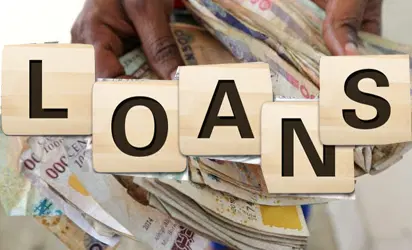Nigerian businesses are facing punishing commercial loan interest rates of between 29 per cent and 36 per cent, with analysts warning that the burden could stifle investment, job creation, and growth.
According to staff at several banks, rates are determined largely by risk profiles, inflation, and monetary tightening by the Central Bank of Nigeria (CBN).
“Interest rate for our commercial loans is between 32 per cent and 35 per cent. However, we may get approval or a waiver for some special customers for 30 per cent,” a senior Fidelity Bank staff told Nairametrics.
A senior official at a Tier-2 bank said their commercial loan rates were 32–36 per cent, though government-backed loans such as Creditcorp’s come in at 24 per cent and Finance Ministry-backed mortgages at 9.75 per cent.
Providus Bank confirmed its rates range from 29–35 percent, while Globus Bank offered 29–30 percent. A UBA Plc official said their commercial loan rate was about 29 percent, “determined by the MPR,” but added, “We’re open to structuring deals based on value and the project’s nature.”
CBN Governor Yemi Cardoso defended the hawkish stance, noting that inflation remained a top concern. “Persistently high inflation justifies continued tightening. It may be a drag on growth, but price stability is the priority,” he said.
The CBN has raised the Monetary Policy Rate to 27.50 per cent and maintained a Cash Reserve Ratio of 50 per cent, leaving banks with fewer funds for lending.
The International Monetary Fund described the stance as a “necessary response” to macroeconomic instability, while urging complementary fiscal reforms.
Former Lagos Chamber of Commerce DG, Dr. Muda Yusuf, now CEO of the Centre for the Promotion of Private Enterprise (CPPE), condemned the situation. “Interest rates above 30 per cent are simply too high for any business. No investment can survive this,” he said. “You can’t support industrial growth with short-term funds. The cost and tenure mismatch is killing enterprise.”
CFG Advisory warned in a recent report that the spread between 5–7 percent deposit rates and 30 percent-plus lending rates was choking credit to the economy. It urged the CBN to cut interest rates, ease policy, and coordinate with fiscal authorities to attract long-term capital.
With SMEs providing over 80 per cent of Nigeria’s jobs, analysts say persistently high interest rates risk weakening productivity, consumer spending, and capital investment, with even large corporations now delaying projects or seeking offshore financing.





